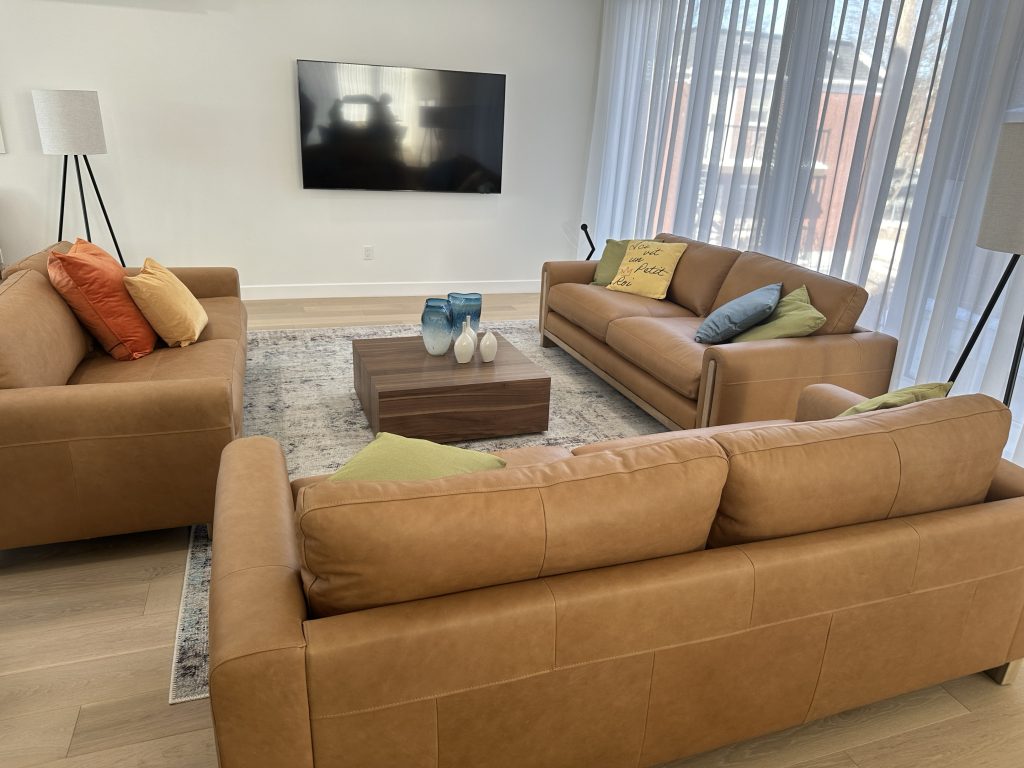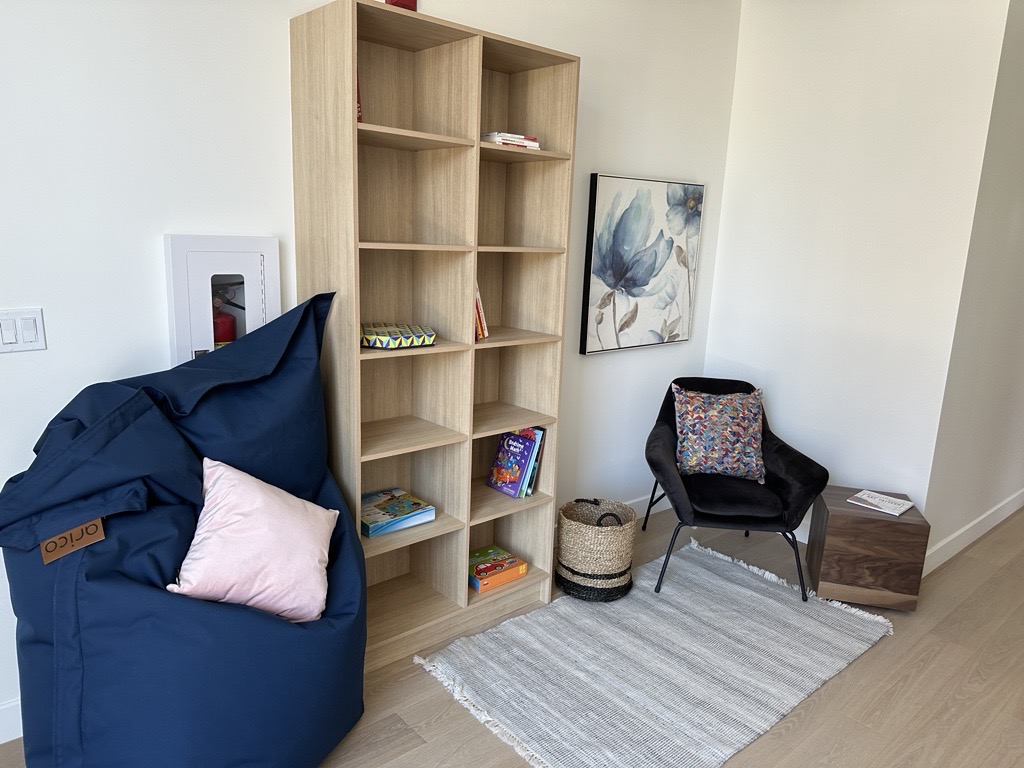Montreal inaugurates Smart House; facility helps young people with intellectual disabilities
Posted February 19, 2024 12:05 pm.
Last Updated February 19, 2024 6:29 pm.
The governments of Canada and Quebec, the City of Montreal and the Fondation des Petits Rois inaugurated ‘Smart House’ on Monday.
It’s a facility in Montreal that will be able to accommodate eight young people, 21 and older, with an intellectual disability – including some who are autistic.
“Everything in this home has a technology that is going to be connect to every kid that are going to live here,” said Vânia Aguiar, president and founder of Fondation des Petits Rois.
Everything in the home has been designed to support the daily routine of the individuals living there, while also contributing to developing their autonomy, self-determination and learning capabilities.
“Whether it is meal preparation or doing their laundry, through the technology, it cues the clients of the steps that are required and with their educator or the staff that assists them to help them go through the routine of doing these tasks,” said Mary Lattas, director of rehabilitation at CIUSSS Centre-Ouest Montreal.

The three-story building, located in the Côte-des-Neiges–Notre-Dame-de-Grâce borough, aims to support people in carrying out their daily tasks. For example, learning screens located throughout the house will help young people prepare cooking recipes, wash their clothes or wear clothes adapted to the outside temperature.
It will also offer workshops in gardening, dance and art therapy, music therapy, cooking and boxing to help them maintain their skills and integrate into the community.
“I often say: you have to innovate in housing! Today’s project is a perfect example. I’m proud to be inaugurating this house here in Montreal, with its concept that is unique in Canada,” said France-Élaine Duranceau, Quebec Housing Minister in a press release. “I’m certain that it will perfectly meet the needs of its occupants.”
“Given the current housing crisis, we must continue to mobilise the community and the various levels of government to replicate this type of project throughout Montreal,” explained Montreal Mayor Valérie Plante.
Aguiar says that this project is a unique residential model that can help develop independence and self-determination.
“I believe that, both locally and internationally, this home will be seen as a model for promoting the inclusion and social participation of people with disabilities.”

Quebec university researchers have contributed to the project, which will help to develop knowledge in this area of expertise.
The $6.7 million project was made possible by the support of the governments of Canada and Quebec and the City of Montreal.
“It is through collaboration that we have won this victory and we are committed to creating more innovative housing here in Montreal and across the country,” explained Rachel Bendayan, Parliamentary Secretary to the Deputy Prime Minister and Minister of Finance of Canada.
The Government of Canada’s $2.2 million support was awarded under the Canada-Quebec Agreement for the Rapid Housing Initiative (RHI).
The Quebec government allocated more than $2 million to the project, mainly through a grant from the Ministère des Affaires municipales et de l’Habitation.
The Société d’habitation du Québec will also be allocating a rent supplement to residents, which enables them to pay 25 per cent of their income towards housing.
Support will also be provided to the Fondation des Petits Rois to hire psychosocial counsellors to provide support.
“We’re starting the clinical evaluations so we’re hoping that we can start integrating month of March, early April,” explains Lattas, “as you can understand, it’s a period of adaptation so you cannot have all eight residents come in at the same time. They need to adjust, they need to be brought in to understand what the environment is, so, it’s a gradual integration.”






